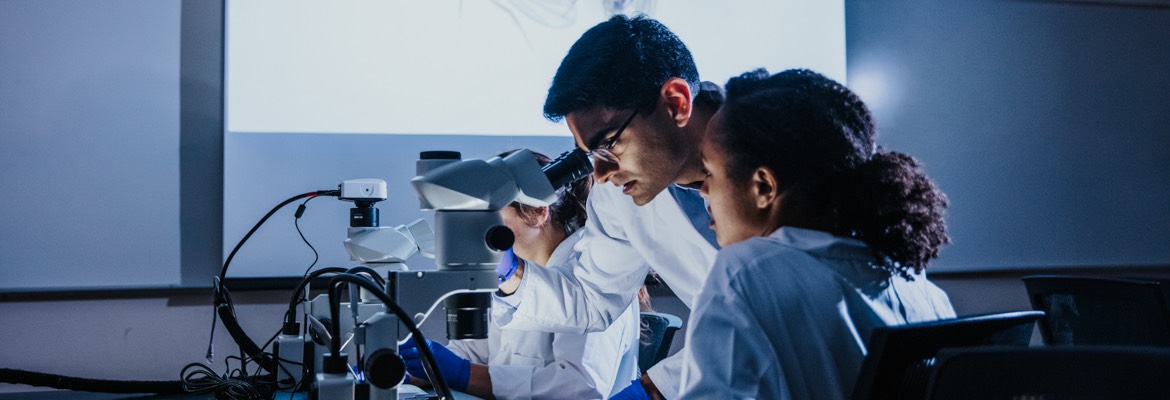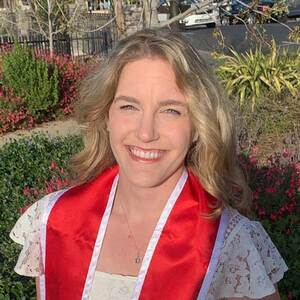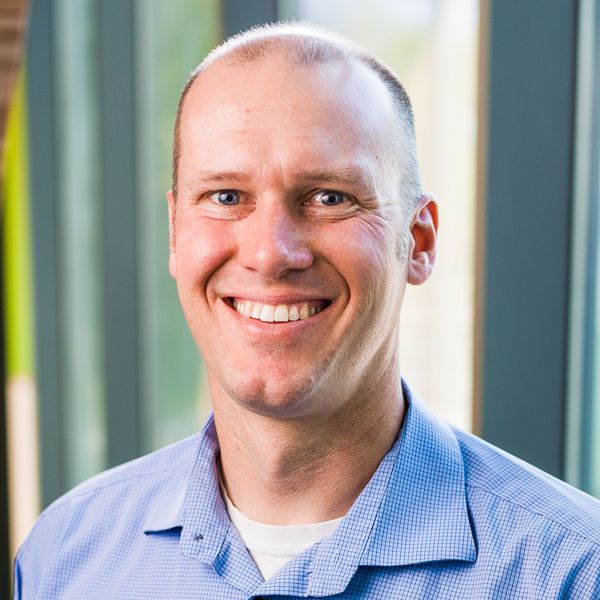B.S. in Biological Science
Overview
Biological science is the study of living systems. As a biological sciences major, you’ll engage areas of focus such as cell biology, neuroscience, ecology, molecular biology and much more. Biola's biological science degree will prepare students to study and appreciate God's creation at the organismal and biomolecular level as well as provide the knowledge and skills needed to succeed in a variety of biology disciplines and careers.
In addition to its strong curriculum and biblical integration, Biola’s Biological Bachelor of Science program offers biological sciences students several key advantages:
- Small class sizes and laboratory sections give you an opportunity to develop close relationships with your biological sciences professors, who have extensive experience in teaching, research and publishing.
- Graduates report feeling well prepared for biological-related careers, such as marine biology and veterinary medicine which are among the best-paid, highest-satisfaction and fastest-growing life sciences occupations.
- Biola’s location in Southern California — one of the world’s largest and most diverse metropolitan areas — is ideal for biology majors seeking internships and job opportunities.
- Integration of known biological facts with scriptural principles are emphasized and taught to guide you in your spiritual development — you will not only graduate with a biology degree, but also the ability to effectively discuss theories of origins and evolutionary biology within the context of a scriptural view of creation.
- Well-equipped laboratories at the Lim Center offer hands-on experience and opportunities to put your academic learning into action.
- Be mentored by expert faculty who integrate their Christian faith into their lives as researchers, teachers and ministers in local or global communities. Students have opportunities to be involved in directed research with faculty, participate in presentations at various conferences and co-author peer-reviewed journal articles. Learn more about our faculty and student research.
Concentrations
- Environmental ScienceThe environmental science concentration prepares students to become leaders who are passionate about restoring all aspects of God’s creation. By combining scientific and theological knowledge with practical field, lab and communication skills, students will be equipped to create just and sustainable solutions addressing the environmental challenges we face in today’s world.
- General BiologyThe general biology concentration prepares students for a variety of non-health care graduate programs such as marine biology, botany, ecology, cellular biology, genetics, or medical research. This concentration allows students to choose from a wide range of upper division biology electives that are suited to their career goals including: marine biology, vertebrate biology, environmental ethics, neurobiology, and biology of cancer.
- Premed/Pre-Health Care ProfessionalThe premed/pre-health care professional concentration equips students to become strong applicants for medical, dental and veterinary schools. In this concentration, students complete a clear track of courses to prepare for the MCAT and fulfill entrance requirements. Some of the most popular upper division electives in this concentration include: prosection, parasitology, immunology, and nutrition and metabolism.
- Secondary InstructionFor those interested in teaching biology at the high school level, this concentration provides coursework that, combined with successfully passing the California Subject Examinations for Teachers (CSET), leads to a California Single Subject Teaching Credential in Biology. The Professional Teacher Preparation Program leading to a California Teaching Credential at Biola University is subject to change in response to new legislation. See a credential analyst at Biola's School of Education for current information on completing the requirements for a teaching credential. Students must consult with both their major advisor and a School of Education advisor.








